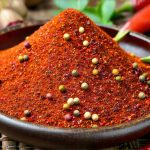Gastric discomfort – that unsettling collection of bloating, gas, cramping, heartburn, and nausea – is an all-too-familiar experience for many. While often fleeting and easily dismissed, persistent or severe gastric distress can significantly impact quality of life. Increasingly, the link between what we eat and how our stomachs react is becoming clearer, and a major culprit in many cases isn’t necessarily unhealthy eating overall, but rather the prevalence of highly processed foods in the modern diet. These convenience-driven products, while tempting for their accessibility and often appealing flavors, frequently contain ingredients and are formulated in ways that can actively irritate or disrupt our digestive systems.
The rise of processing as a cornerstone of food production has fundamentally altered the nature of what we consume. Generations ago, meals were more likely to be built around whole, recognizable ingredients prepared from scratch. Today, supermarket shelves are dominated by items containing lengthy ingredient lists filled with names many of us can’t pronounce. This shift isn’t inherently bad, but it introduces a range of factors that contribute to gastric discomfort for a substantial portion of the population. It’s important to understand why these foods cause issues – not simply to avoid them, but to make informed choices about our dietary habits and potentially mitigate their effects.
The Composition Conundrum: Ingredients & Additives
Processed foods often contain ingredients that are inherently difficult for the digestive system to handle efficiently. Consider refined sugars like high-fructose corn syrup (HFCS), ubiquitous in sodas, candies, and many packaged goods. While providing a quick energy burst, HFCS isn’t metabolized the same way as naturally occurring fructose found in fruits; it can lead to malabsorption in the small intestine, drawing water into the colon and causing bloating, gas, and even diarrhea. Similarly, artificial sweeteners – designed to mimic sugar without the calories – can have unpredictable effects on gut bacteria, leading to imbalances that trigger discomfort. Can you be addicted to these ingredients?
Beyond sugars, the fat content in processed foods is often problematic. Trans fats, though increasingly regulated, still appear in some products and are notoriously hard to digest. Even saturated fats, while not necessarily harmful in moderation, can slow down digestion when consumed in large quantities found within many processed snacks and fast food options. Furthermore, the emulsifiers and stabilizers used to create texture and shelf-life – ingredients like lecithin, guar gum, and carrageenan – aren’t always well-tolerated by everyone. These additives can alter gut motility (the speed at which food moves through your digestive tract), leading to either constipation or diarrhea.
A significant issue is the lack of fiber in many processed foods. Fiber acts as a bulking agent, aiding digestion and promoting regularity. Removing it during processing makes foods easier to chew and consume quickly but strips away a crucial component for healthy gut function. This can contribute to feelings of fullness without providing adequate nutritional value or support for digestive processes. The combination of these factors creates a perfect storm for gastric discomfort. Testing that explains the underlying causes may be beneficial.
Fiber Deficiency & Gut Microbiome Disruption
The absence of sufficient fiber in processed foods has far-reaching consequences, extending beyond simple constipation. Fiber is the primary food source for our gut microbiome – the trillions of bacteria residing in our intestines that play a vital role in overall health. When we deprive these microbes of their preferred sustenance, it can lead to dysbiosis: an imbalance in gut bacterial populations. This imbalance has been linked to a wide range of digestive issues, including irritable bowel syndrome (IBS), bloating, and increased sensitivity to certain foods.
- A healthy microbiome thrives on diversity, consuming a variety of fiber types from whole plant foods.
- Processed food diets tend to favor simple carbohydrates and fats, starving beneficial bacteria and allowing less desirable species to flourish.
- This can lead to an increase in gas production as these microbes ferment undigested carbohydrates.
Restoring gut microbiome balance is a complex process that often involves dietary changes, including increasing fiber intake through whole foods. Probiotic supplements may be helpful for some individuals, but they’re not a substitute for a consistently healthy diet rich in naturally fermented foods and plant-based fibers. It’s also crucial to understand that everyone’s gut microbiome is unique, meaning what works for one person may not work for another. Can your gut heal while continuing these habits?
The Role of Food Sensitivity & Intolerance
Many people experience gastric discomfort after consuming processed foods due to underlying food sensitivities or intolerances they haven’t identified. These are often distinct from full-blown allergies (which trigger an immune response) and can be more difficult to pinpoint. Common culprits include lactose (in dairy products), gluten (in wheat, barley, and rye), and certain additives like sulfites or artificial colors. Processed foods frequently contain these ingredients in hidden forms, making it challenging for individuals with sensitivities to avoid them.
The symptoms of food sensitivity can vary widely but often manifest as bloating, gas, diarrhea, abdominal pain, fatigue, or even skin rashes. Elimination diets – carefully removing suspected trigger foods and then gradually reintroducing them while monitoring for symptoms – are a common method for identifying these sensitivities. However, it’s important to approach elimination diets cautiously and ideally under the guidance of a healthcare professional to ensure adequate nutrient intake. Understanding why foods can be so problematic is key.
Rapid Gastric Emptying & Food Combinations
The way processed foods are formulated can also influence how quickly they empty from the stomach. Foods that are easily digestible (like refined carbohydrates) tend to be emptied rapidly, sometimes before the small intestine has fully prepared to receive them. This rapid emptying can overwhelm the digestive system and contribute to symptoms like diarrhea or cramping. Furthermore, some individuals find that certain food combinations within processed meals exacerbate their discomfort. For example, combining large amounts of sugar with fatty foods can slow down digestion and lead to bloating. Why even healthy diets may cause issues should be considered.
The speed of gastric emptying is affected by a variety of factors, including the composition of the food itself, individual metabolism, and overall health. While there’s no one-size-fits-all answer, paying attention to how different combinations affect your body – and prioritizing whole, unprocessed foods whenever possible – can significantly reduce the likelihood of experiencing gastric discomfort. A slower, more consistent rate of digestion is generally easier for the stomach to handle.
It’s important to remember that individual tolerance levels vary greatly. What triggers discomfort in one person may not bother another. However, recognizing the common issues associated with processed foods and making conscious dietary choices can empower you to take control of your digestive health and minimize unpleasant symptoms. Prioritizing whole, unprocessed foods – fruits, vegetables, lean proteins, and whole grains – is a cornerstone of a healthy gut and overall well-being. Why some smoothies might be problematic compared to others is also worth investigating.
Additionally, can fermented foods trigger reactions in sensitive individuals?


















